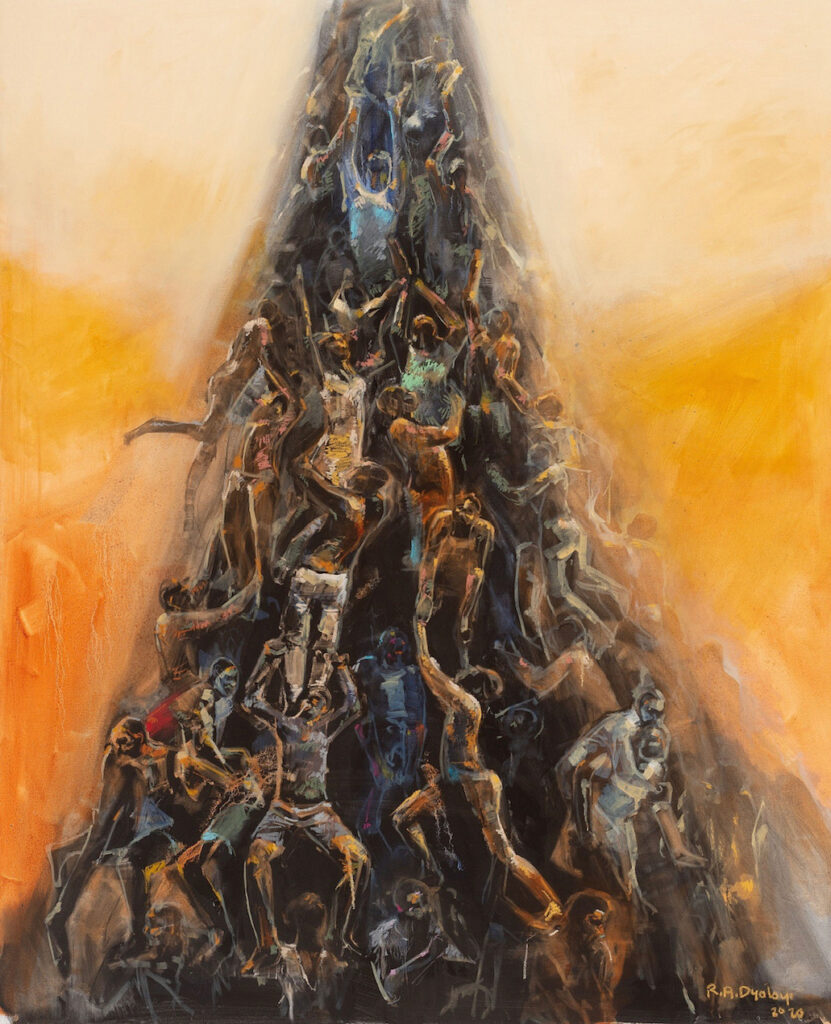Standing on the Shoulders of Giants

Standing on the Shoulders of Giants 2022 is a new version of the Eyes on the Prize documentary, yet with a significant difference. Like Eyes on the Prize, Standing on the Shoulders of Giants (SOTSG) is focused on the liberation movements of people of color. However, unlike Eyes on The Prize, Standing on the Shoulders of Giants is a community led, intergenerational story sharing project that centers and celebrates the experience of everyday people as well as community leaders.
The need for the SOTSG program concept and design is based on three ideas. The first, exacerbated by the Coronavirus, was the incredible number of elders communities of color we have started losing. As the famous quote from John Amos reminds us, every time an elder dies, a library burns to the ground. The tragic loss of community elders due to Covid has heightened the urgency of this project. The historical experiences and recollections of the underserved and oppressed must be told and heard too. Not just the stories of the leaders for change, but the stories of the everyday person must also be told. Our stories are our superpowers! Secondly, the stories of the everyday person must be told for these exchanges of power to be realized, relayed and recorded. Having a place to store them is of utmost importance as well. Thirdly, beginning to understand your life’s purpose. Self expression, being able to read and write and express oneself verbally is of utmost importance. The telling, collecting, and chronicling of our stories guides us to our life’s purpose. Collecting and sharing these stories will create new opportunities to make the harsh conditions known and understood to successfully convey how people locked in the visible prison of their own skins in America and worldwide were capable of not only surviving, but also finding ways to re-define, re-invent and develop themselves as vibrant albeit scattered groups, with lives and times worthy of celebration.
By collecting and sharing untold stories of the birth and early years of hip-hop in Boston, and including these stories in the Massachusetts Hip-Hop Archive, the project will help to correct a historical gap in documenting and celebrating black arts and culture in Boston. Due to the Intergenerational nature of the Standing on the Shoulder of Giants (S.O.T.S.G.) program, the project will be a pilot test of a larger model that will teach youth participants how to set-up, capture, edit and archive community stories themselves eventually. This will also be a first test of Born’s theory that intergenerational story sharing acts as an exchange of power among historically marginalized people. Through this work, participants will realize their stories are important, share the power of these stories with each other and their broader communities, and through this work, develop a deeper understanding of their life’s purpose and connection with community.
In addition to the primary goal of intergenerational story collecting and sharing, a second goal of the project will be to introduce Born, a lifelong story teller and keeper, with the professional practices and tools of oral history and grant writing so that he can facilitate community story sharing and archiving and continue the Standing on the Shoulders of Giants program after the funding period ends. In addition to the support of the OHA cohort and professional development opportunities coming from the grant, Born will have access to trained oral historians in the History Department at UMASS Boston who will help ensure that the project plan and implementation adheres to oral history best practices. He will in turn share these skills with the community, and particularly youth members of a local non-profit, thereby engaging in capacity
Standing on the Shoulders of Giants has several primary audiences. The first is hip-hop community members in Metro Boston. Because hip-hop from Boston has been historically overlooked and marginalized by industry gatekeepers, artists from Boston have had few opportunities to have their stories told to broader audiences and each other. Due to historical exclusion, not only is the wider public unaware of these artists’ stories and work, many are not even aware of each other. By connecting artists from multiple generations in telling their stories, the project will assist them in finding and sharing the power in their own stories with each other and with the broader public. In addition, because the project will be done in partnership with the Massachusetts Hip-Hop Archive at UMass Boston’s Archives and Special Collections at the Healey Library, the resulting interviews will be available to the scholarly community and general public alike.
Finally, as noted in the letter of commitment, the project also fits perfectly with the current needs of the Massachusetts Hip-Hop archive for community scholars who can help them collect oral histories while building community engagement with the collection. In addition, Born will help the Massachusetts Hip-Hop Archive by providing feedback about how to develop and maintain sustainable and authentic community partnerships over the long term